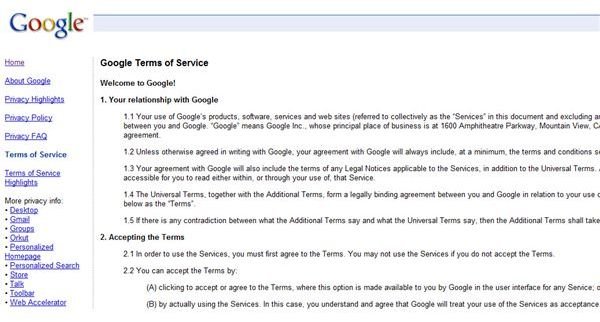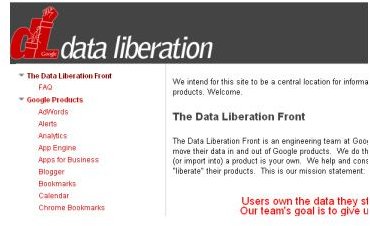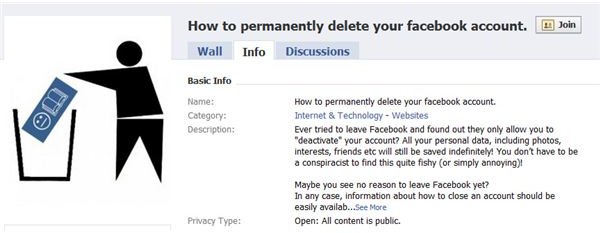Comparing Google+ and Facebook With Regard to User Privacy and Content Ownership
Not Ideal, but No Alternatives
Of all the complaints users have had about Facebook, one of the most longstanding and frequent concerns is the site’s approach to personal privacy. In early 2010, Mark Zuckerberg famously stated that sharing personal information publicly was “the new social norm.” This led to a torrent of criticism from observers and Facebook users who felt that, while the world is undoubtedly more public than it was, this statement was both overly simplistic and dismissive of users’ rights to choose how widely their data is shared.
This wasn’t the only area of concern. Another big source of discontent was Facebook’s disturbingly broad license for reuse of users’ content. In spite of Facebook’s protests that it had no intention of reusing pictures, notes and other content posted by its users, the furor sparked by the 2009 Terms of Service change never completely died down. The site may have protested its innocence, but user mistrust lingered –especially over the issue of what happens to data when an account is deleted. To this day, users grumble that Facebook’s procedures for permanently deleting data are obscure and somewhat less than intuitive.
In spite of these issues, Facebook saw no significant downturn in its user base. A few disgruntled users may have walked away, but the overall number of registered users continued to grow. There are two logical explanations for this. One is that a lot of the noise was coming from a small, vocal group, and the majority of users did not see this as a significant problem. The other is that while users had legitimate concerns over Facebook’s treatment of their right to privacy and ownership of their content, they stayed on the site because there was no viable alternative. If the latter is true, Google+ has the potential to change things significantly.
The Fine Print
So how do Facebook and Google+ stack up when it comes to their treatment of content ownership and user privacy? Facebook’s Terms of Service are, regardless of their statements of intent, both brief and very wide in scope:
“For content that is covered by intellectual property rights, like photos and videos (“IP content”), you specifically give us the following permission, subject to your privacy and application settings: you grant us a non-exclusive, transferable, sub-licensable, royalty-free, worldwide license to use any IP content that you post on or in connection with Facebook (“IP License”).”
Google+, on the other hand, provides significantly more detail:
“You retain copyright and any other rights you already hold in Content which you submit, post or display on or through, the Services. By submitting, posting or displaying the content you give Google a perpetual, irrevocable, worldwide, royalty-free, and non-exclusive license to reproduce, adapt, modify, translate, publish, publicly perform, publicly display and distribute any Content which you submit, post or display on or through, the Services. This license is for the sole purpose of enabling Google to display, distribute and promote the Services and may be revoked for certain Services as defined in the Additional Terms of those Services.”
There are two key differences in the fine print: the first is that Google spells out that users retain copyright. Facebook makes no such promise. The licensing terms that Google refers to are also very broad in scope, but they go on to specify a series of details around how they can make use of content posted by users.
“You agree that this license includes a right for Google to make such Content available to other companies, organizations or individuals with whom Google has relationships for the provision of syndicated services, and to use such Content in connection with the provision of those services.
You understand that Google, in performing the required technical steps to provide the Services to our users, may (a) transmit or distribute your Content over various public networks and in various media; and (b) make such changes to your Content as are necessary to conform and adapt that Content to the technical requirements of connecting networks, devices, services or media. You agree that this license shall permit Google to take these actions.”

Privacy: Comparing Records
Neither Google nor Facebook has an unblemished record where privacy is concerned. Google has seen lawsuits over people whose images were captured in Streetview, and Facebook has stumbled repeatedly with the Beacon advertising fiasco and its seeming inability to learn that users don’t like the default option to be public when new features are introduced. To this day, features like the ability to tag friends without their consent when checking into a location via Places and the new facial recognition technology in Facebook photos are implemented with the most public option possible as the default.
Google+, by contrast, identifies sensitive information in user profiles (for example, contact information) and ratchets up the default privacy setting. Circles offer genuine granular control over who sees your content, an area where Facebook fails completely. The cumbersome Friends lists and content privacy settings that purport to provide user control over content sharing are full of glaring loopholes. For example, a user can decide that they wish to screen a certain type of content - say, photos - from a particular group of friends. Therefore, they place those friends into a list and hide all their photo albums from them. So far so good. However, when they post new photos to that album, the minifeed story announcing the new additions still appears to that list of restricted friends, because this type of content - minifeed posts - isn’t hidden from them. In addition, via that post, they can access the photos and comment on them. The only way to guarantee that they cannot see content is to hide the original user’s wall from them entirely.
On Google+, achieving the same goal is simple. Put that group of friends into a circle, and don’t share photos with that circle when they are posted. Mission accomplished.
Taking Your Data Back
An often-repeated concern about Facebook is what happens to your data when you delete your account. The company themselves have admitted that certain types of data will remain on the site, and have made it clumsy and unintuitive to permanently remove an account and all of its associated content. Google, on the other hand, offers a tool called Data Liberation that allows users to remove all of their posted and shared content from all Google products quickly and easily. This is something with which Facebook cannot compete, at least currently.

Conclusion
At the moment, Google+ is certainly ahead in terms of how it treats user privacy and content rights. Regardless of the fine print, some sources have already noted that Google simply has a better reputation when it comes to respecting users’ data. While there is no question that Facebook’s reputation in this area is tarnished by poor decisions in the past, so far it has shown no particular inclination to learn from those mistakes and acknowledge that Mark Zuckerberg’s dismissal of the concept of personal privacy is not something with which many users are comfortable. Now that there is a genuine alternative social network for users, it will be interesting to see if the consequences of these decisions start to have a more significant impact.
References
-
ReadWriteWeb. Facebook’s Zuckerberg says the age of privacy is over.
-
Facebook User Group. How to permanently delete your Facebook account.
-
Google Blogoscoped. Google’s Data Liberation site.
Screenshots by author.
